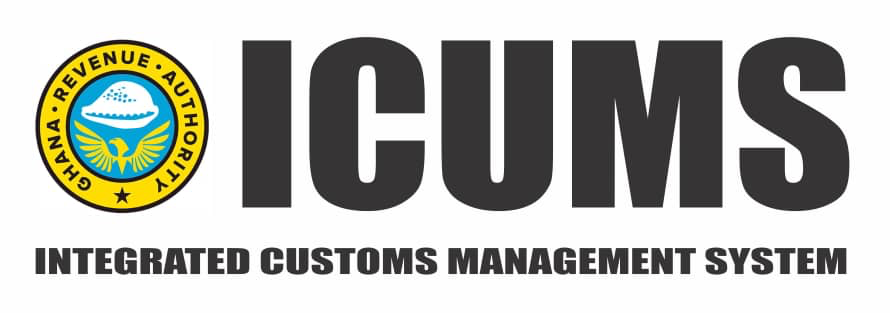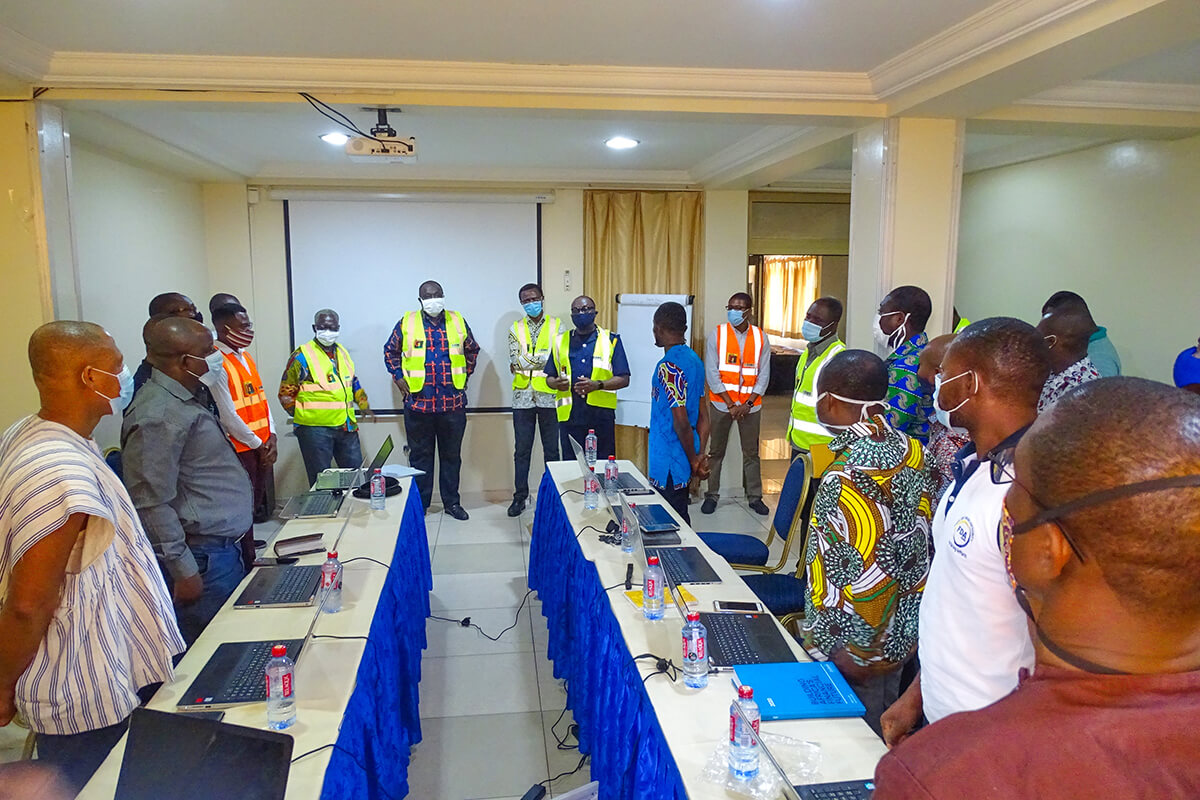ICUMS

the ICUMS
(integrated customs management system)
ICUMS is an e-customs system that utilizes state-of-the-art cloud computing technology to provide a swift and secure customs clearance process thus boosting government revenue and accelerating economic growth of Ghana.
the ICUMS
ICUMS is an e-customs system that utilizes state-of-the-art cloud computing technology to provide a swift and secure customs clearance process thus boosting government revenue and accelerating economic growth of Ghana.
Being a real single window system ICUMS is a fully automated and paperless system which enhances the national economy through accurate and fair taxation of all imports and exports at ports and borders while maintaining international trade protocols and controlling illegal activities such as smuggling etc.
ICUMS e-customs system boosts government revenue and drives the domestic economy by facilitating quick clearance at various ports thereby enhancing productivity and optimizing the supply chain for accelerated industrial production.
features
User Friendly
The system enables users including customs officers, importers, exporters, freight forwarders, custom brokers and agents etc., round the clock access and real time status data of the import or export cargo anytime and anywhere
Optimizing Work Efficiency
UNIPASS-GH portal allows all stakeholders including customs officers and regulatory agencies to work in a fully automated environment with a system fully optimized for border protection swift clearance and also allows simultaneous access and utilization of integrated big data.
Highest Level Security
UNIPASS-GH is a system that applies international security standards such as wco dm and is capable of secure data exchange with various customs and border and regulatory agencies around the world.
The 3 ICUMS Business Modules
Business processing (Procedural business modules and Non-procedural business modules)
- It is composed of the Single Window/portal, the Procedural business modules (i.e. Clearance management, Cargo management, Duty collection, etc.) and Non-procedural business modules (i.e.: Investigation, surveillance, audit etc.). These form the most basic customs modules for the automation of the customs administration.
- Migration of data from PAARS and GCMS to the new system. This will harmonize the operations of various public and private agencies in Ghana’s trade and supply chain system.
- This intends to alleviate the problem of different electronic messages, and improve the accuracy and use of data, for the processing of regulatory permits for customs procedures, in accordance with internationally agreed standards such as the WCO Data Model, which seeks to simplify and standardize data requirements for reporting goods and cargo declarations to customs.
Contents management, information (trade information, notice board for trade information, publication of applicable laws regulations and directive) provision to user, administrative management, log-in process
Import and export declaration processing, Import and export declaration entries, duty assessment, inspection management, suspense regime management
Manifest management, entry/release management, bonded warehouse management, free zone management, unload management, cargo tracking
e-Payment management, duty collection management, and duty collection reporting
Targeting management (clearance), software of various targeting technique e.g. selectivity, security management, Improvements to targeting management (cargo, post audit)
Post clearance audit management – measures by which Customs satisfy themselves as to the accuracy and authenticity of declarations through the examination of the relevant books, records, business systems and commercial data held by persons concerned.
Support to the business processing components
It provides support to the Business Processing Components and are considered to be advanced modules that will aid in raising efficiency of the customs administration by balancing both the trade facilitation and control.
infrastructure
It provides tools for an administration and control of the customs administration system and allows for an efficient management of information based on the Enterprise Architecture.
The system is flexible to support implementations by modules through connection with existing legacy systems, or a full solution implementation of required modules selected by the interested country.
Ghana Link and CUPIA is currently working on seven (7) modules for optimization of Customs processes.


